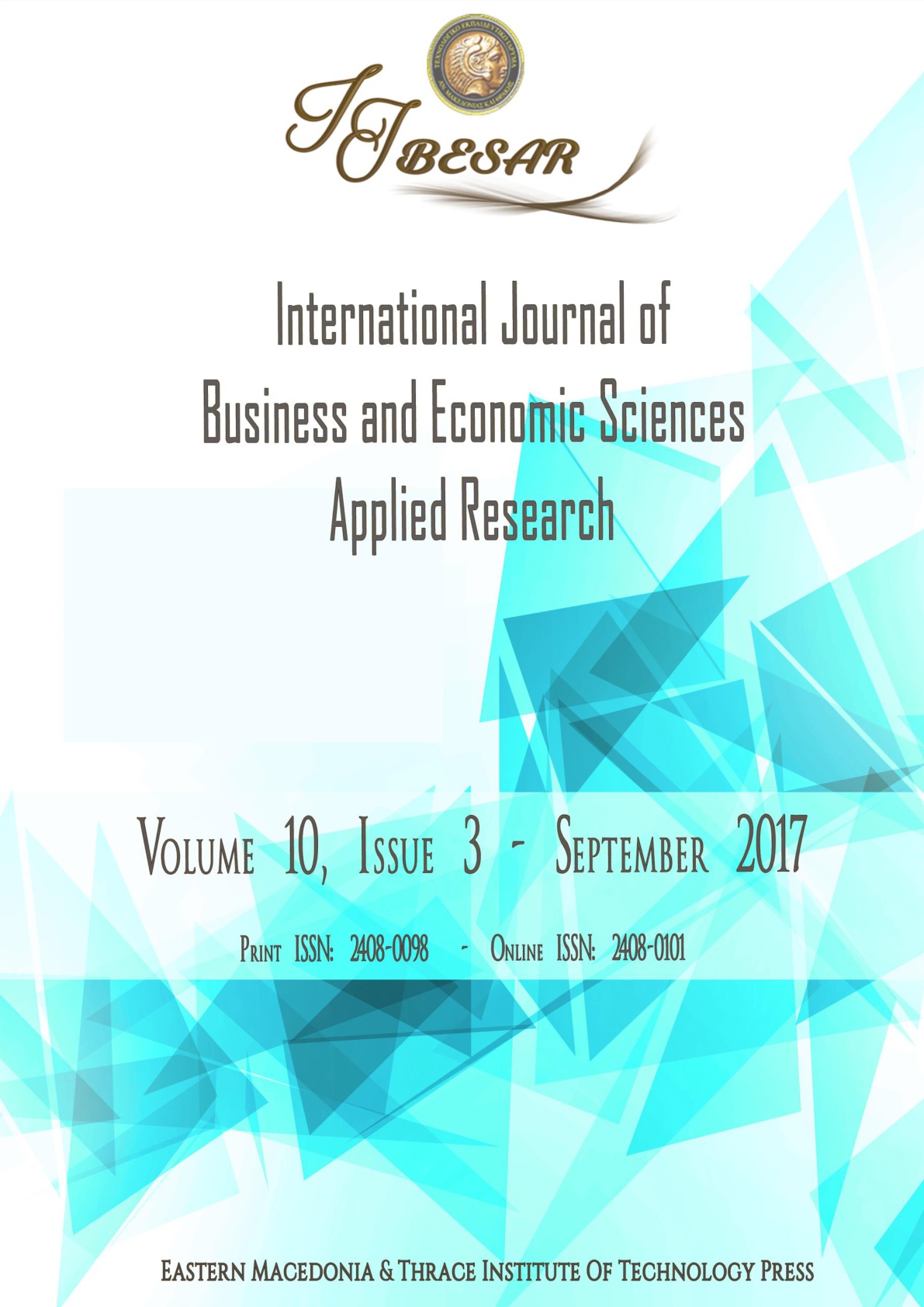Is Nigerian Growth Trade-Led?
Is Nigerian Growth Trade-Led?
Author(s): Ismail Adigun Olayemi, Lateef Olawale Adedeji, Bashir Ayomide Adenekan, Omolola Raliat OwonikokoSubject(s): National Economy, Recent History (1900 till today), Economic policy, Economic development, Financial Markets
Published by: Τεχνολογικό Εκπαιδευτικό Ίδρυμα Ανατολικής Μακεδονίας και Θράκης
Keywords: Export; Economic Growth; ARDL; Thirlwall’s Law; Nigeria;
Summary/Abstract: Purpose: Nigeria is currently in recession, a situation described as induced by decreases in oil output and export, caused by the bombings of oil pipelines in its Niger Delta region, and the unanticipated decline in its value of exports and currency, resulting from the decline in oil prices. With the export value decline, somersaulting to growth, could it then be that Nigerian economic growth is trade constrained? How important is export to growth?. This study investigates these, its invention balances in its methodology Design/methodology/approach: To achieve the above, this paper employs the Autoregressive Distributed Lag Model (ARDL) and the Thirlwall’s Law of balance of payment led growth, using a combination of annual (1981 – 2016) and quarterly (2000Q1 – 2016Q4) data to ensure robustness. This combination not only allows for comparison but also ensures the reflection of the current government’s trade decisions and trade activities; these are missing in other studies. Findings: Using the Wald F-Statistic, Economic growth is found to be equal to export growth rate divided by income elasticity of import, the estimated income elasticity of import which is greater than 100% or elastic reflects over dependence on import both in the short and long run, implying that Nigeria imports more than it earns. Exchange rate and terms of trade are insignificant especially in the long run. The study calls for monitoring of import contents; the government needs to enforce its recent directives to stop importation of some products that are already being produced within with higher quality and adequate export promotion strategies should be formulated and enforced. Research limitations/implications: The data span is restricted by data availability, the study could as well confirm its results with monthly data for robustness and better confidence, but most of the variables are reported annually and quarterly only. Originality/value: Many studies have confirmed the importance of export to Nigerian economic growth; none known to this study has combined both quarterly and annual data and covered recent data as this. This study will help policy makers in their focus when trying to deal with negative economic adjustments.
Journal: International Journal of Business and Economic Sciences Applied Research (IJBESAR)
- Issue Year: 10/2017
- Issue No: 3
- Page Range: 80-89
- Page Count: 10
- Language: English

